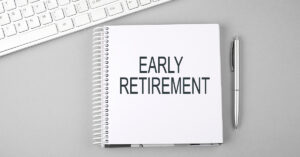The Best Way To Grow and Save Money

You can only decide for yourself what the best way to grow and save money is. So, how do you know which method you should choose? And once you put money somewhere, how long should you keep it there? And does your age and stage of life matter when it comes to where you save or invest? Well, there’s a lot to consider. So here are some things you can think about to hopefully help you make the right choice.
Which Savings And Growth Stage Are You in?
Your needs and priorities change as your life changes. And your financial goals are no exception. For instance, early in your career, you might not have much money left once all the bills are paid. With limited funds, you might focus on growing your basic savings account in case of emergencies. But once your income increases, you’d have more choices. And then later in life, your goals might shift again. At that point, many people begin to look at protecting their hard-earned money. Your stage of life can impact what choices you have and what the best way to grow and save money is for you.
Tips For Early Stage Savers
Everyone’s financial situation is different, of course, but there are few basic ideas that can help most people in the start-up phase of savings. First, you need to determine a budget. Start by making a list of all your essential expenses, must-haves like food, housing, utilities, etc. Then write down any additional monthly required expenses, such as car insurance and medical co-pays or expenses. Next, mark down any monthly debt payments you may have, like cars, or student loans. (If you have any expenses that are paid quarterly or annually, rather than monthly, do the math to determine what they cost you monthly. For example, a $600 quarterly bill should be marked down as a $200 monthly expense.)
Once you have your list of all your monthly expenses, it’s time to list your income. Using your net pay, after taxes and other withdrawals, write down the total you receive each month. If you’re self-employed, or if for whatever reason your income tends to go up and down each month, base your budget on your lower average income. This way, you can save any “extra” for the months when your income is below average. Finally, subtract all your expenses from your income. What you have left is your available savings.
After you’ve determined your budget, and how much your available savings are, it’s time to build up your basic emergency account. Most people use a regular savings account for this, but some also choose a money market account with checking writing privileges. The point of this account is to have enough money to be able to handle emergencies, without going into debt. you’ll be ready to begin saving for your future when your budget is complete, and your basic savings goals are met.
The Best Way to Grow and Save Money For Mid-Stage Savers
During this phase of financial savings, people usually begin investigating and saving for retirement. Using accounts like 401(K)s, IRAs, and other investment vehicles, mid-stage earners usually have their focus on trying to grow their money. It’s important to make sure you’re working with a qualified financial advisor because there are so many choices to make in deciding where to invest your money. The person you get advice from for investing purposes should be securities licensed. You should understand the risks associated with any given investment. Some people also choose to learn more about insurance products during this time, such as life or disability insurance. These products could help to protect the household income via a death benefit in the event that the income earner (or earners) passes away. For insurance products, you should seek out a licensed insurance professional.
Now for many people, mid-stage savings involves investing for the long term. In mid-stage, most people feel they have time on their side. Many people decide to ride the waves of the market during this stage, although the stock market carries risk and sees many ups and downs. Their goal is to have long-term overall growth. Of course, this isn’t guaranteed, but the key is to have a qualified investment advisor on your side. Understanding the risk and making a strategy is important. In addition, you should make sure you’re also sticking to your budget, and maintaining your emergency savings.
When Retirement is in Sight
After your money has reached a certain amount, you may begin to think about changing your savings goals to prepare for retirement. This begins to occur around 5-10 years before retirement for most people. Although the ups and downs of the market might have been acceptable before, during their earlier working years, some pre-retirees begin to think more about protecting their money from the risk of the market. They want their principal protected from the possibility of a stock market crash.
Certain annuities and life insurance products could be something to consider as you near retirement. Fixed indexed annuities, for instance, might offer you the ability to obtain a reasonable rate of return over time whilst still protecting your principal from losses. In addition, you may choose to have your annuity provide you with income when you reach retirement. Be sure to speak with a qualified, licensed insurance advisor to find out more about your annuity and life insurance options.
The Best Way to Grow and Save Money in Retirement
During retirement, your savings goals are likely to change yet again. Many retirees want to make sure that their money lasts them their whole lifetime. In addition, you might also want to learn about options for leaving a legacy. This may include ways to pass on your money to your beneficiaries, or ideas for how to make sure your spouse still has a retirement income, should you die before them. Although budgeting and maintaining liquid assets is still important in this stage, you may look to change strategies in order to protect your money from losses.
One good way to gather information about how to protect your retirement savings is to attend our educational seminars. Each year, we host several complimentary dinner seminars, where we can educate you on how the stock market may impact your current accounts and options for protecting your money. To register for these events, please contact us.








